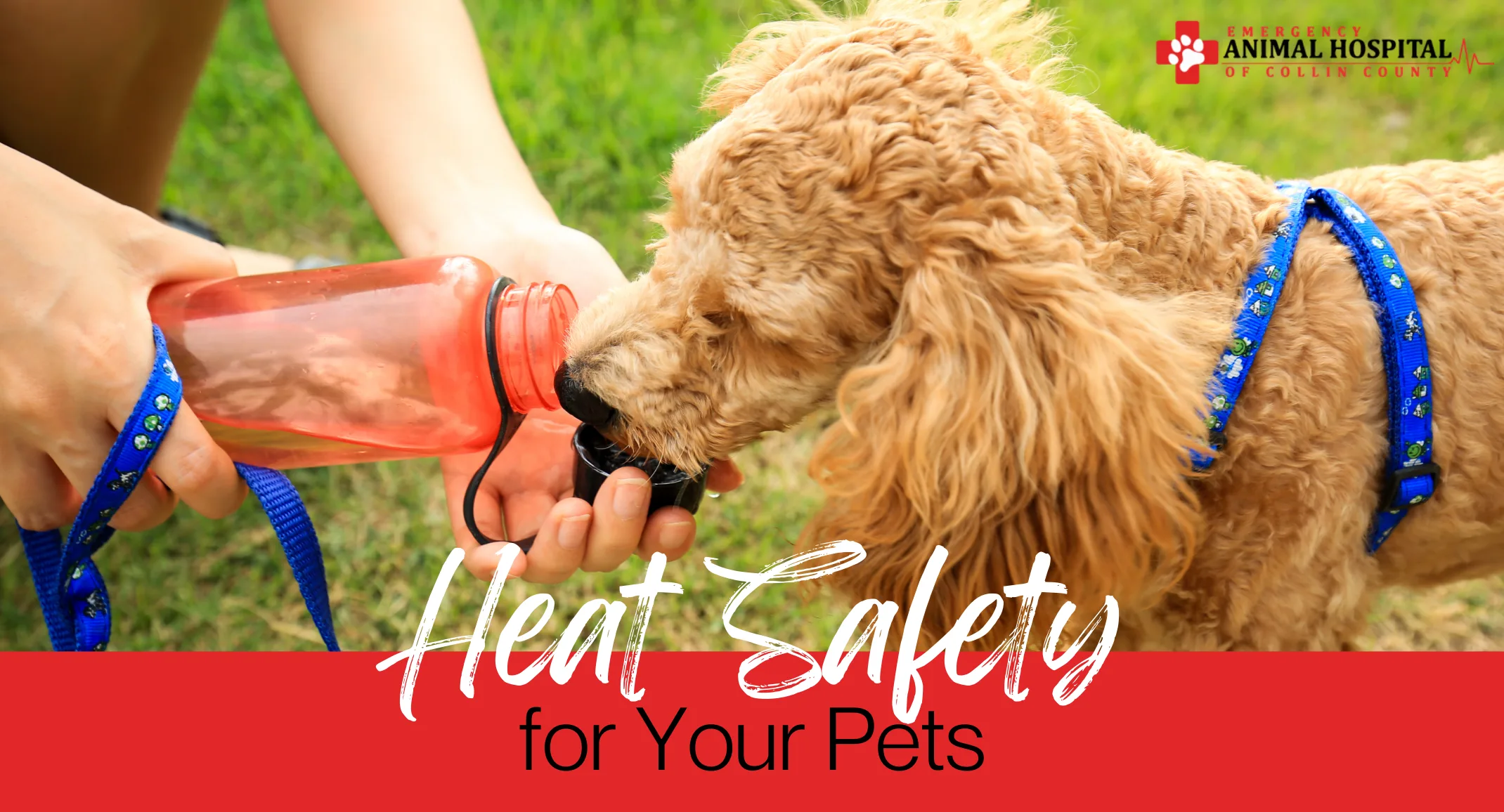Heat Safety
Pet Safety

Heat Safety for Your Pets
At Emergency Animal Hospital of Collin County, we want you to have fun in the sun with your pets! Unfortunately, we see heatstroke and other heat-related emergencies much more often than you'd think. Please continue reading for tips to help keep your pets safe in warm weather.
Hot Cars
You've heard horror stories on the news and it's true: the interior of a parked car on a warm day can reach fatal temperatures in minutes. This is the case even when parked in the shade, with the windows cracked, on a seemingly cool and breezy day. NEVER leave your pets in the car on a warm day, even for just a quick pit stop
Paw Burns
Your pet's paws are not immune to the heat of the ground and they aren't able to slip on flip flops like we can. If you can't hold the back of your hand to the ground for at least 10 seconds without feeling a painful burn, the surface is too hot for your pet to walk on. Pets can experience severe burns on their paws from walking on hot surfaces.
Other Culprits
Many seemingly harmless spaces can reach high temperatures quickly without proper airflow, fresh water, or shade - including garages, attics, decks, rooftops, outdoor events, and even your own backyard! Ensure that fresh water and shade are available to your pets at all times and realize that they need air conditioning and proper ventilation just as much as we do.
Signs of Heat Distress
Increased rectal temperature
Vigorous panting
Dark red gums, tongue, or mouth
Lying down and unwilling/unable to get up
Dizziness or disorientation
Collapse and/or loss of consciousness
If you suspect your pet has heatstroke
Act quickly. Remove your pet from the hot area.
Call your primary care veterinarian immediately. In the event of an after-hours emergency, contact EAHCC.
As you seek medical attention, lower your pet's temperature by wetting him or her with room temperature water, and increase air movement with a fan.
When your pet's rectal temperature drops to 103.5°F, stop all cooling efforts.
